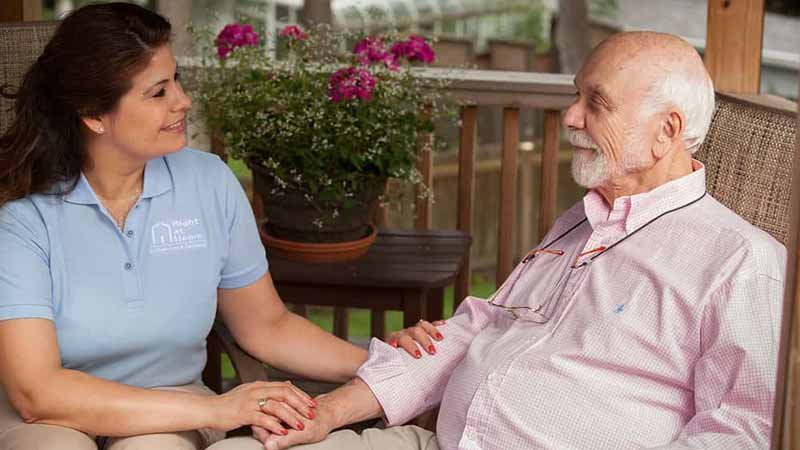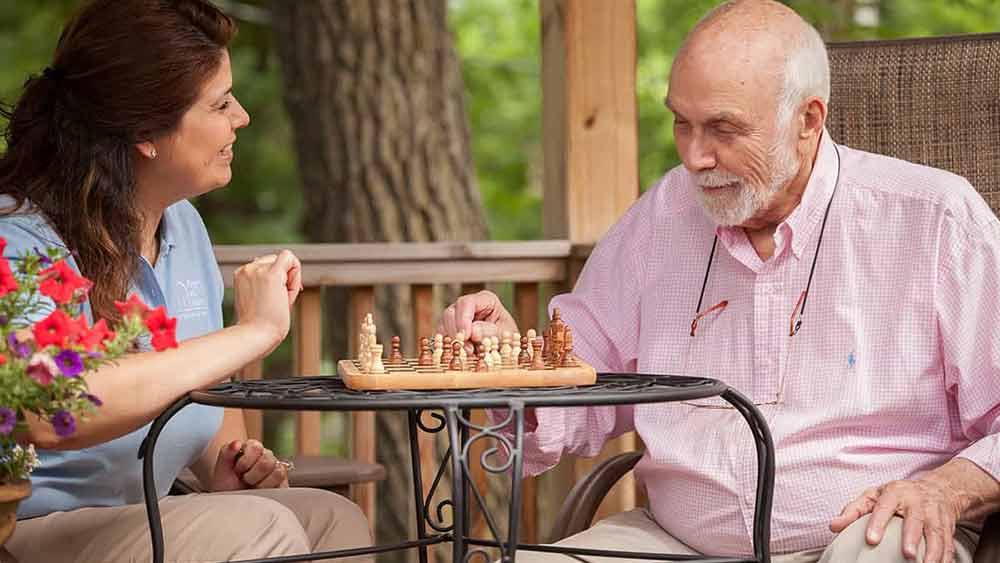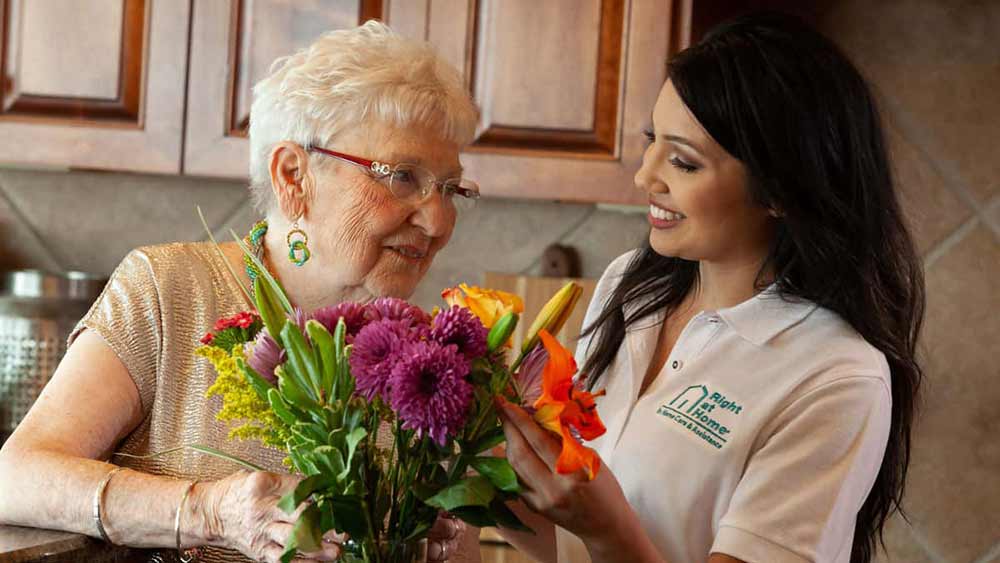

Responding to Anger in a Loved One With Dementia
Ted, who has early stage Alzheimer’s disease, is now prone to angry outbursts and accusations. Once so easygoing, Ted often shouts at his wife, Terry. “It breaks my heart,” says Terry. “And sometimes it’s all I can do not to answer back in the same way.”
When people think about the changes caused by Alzheimer’s disease, they most often think of memory loss and confusion. But for families whose loved ones are living with Alzheimer’s or a related condition, the personality changes caused by the disease can be more distressing than the forgetfulness. They might feel as if the person they knew and loved has been replaced by an aggressive, angry stranger.
With no cure for Alzheimer’s disease yet on the horizon, much research is underway to better understand the behavior changes caused by the disease, and to improve care strategies to address them. Experts say angry outbursts and even physical attacks are best understood as expressions of unmet needs. Your loved one may not be able to express what they want or what’s troubling them, and aggression born of frustration or fear is the result.
The role of “emotional contagion” is a relatively new insight. We human beings are wired to perceive and mirror the emotions of others. For example, if we encounter a person who looks sad, we often involuntarily feel a bit of sadness ourselves. In turn, the other person perceives our empathy. Evolutionary scientists believe this mirroring is an important trait of our highly social species, and they are even able to observe it in action using brain imaging.
New research also shows that often, people with dementia have a heightened susceptibility to emotional contagion. With diminished ability to process an interaction on the rational level, they instead are even more likely to mirror the emotional state of the other person. So if a family caregiver is feeling anxious and frustrated, their loved one might, in turn, pick up and mirror those feelings.
Given these new understandings, dementia care experts offer tips for caregivers:
Always keep in mind the origin of your loved one’s changed behavior. There is almost always an underlying reason that your loved one lashes out verbally, or even throws objects or tries to hit someone. They may be unable to express that they are in pain, lonely or afraid. They may be upset that they can’t remember something or perform a once-familiar task, especially if they feel pressured by someone else to do so. Their brain may be overloaded in a noisy room with too much stimulation.
Don’t argue. Reassure your loved one. Speak calmly. Listen to your loved one’s concerns and frustrations. Try to show that you understand. If the disease is causing your loved one to believe something that isn’t true—even if it is an accusation directed at you—don’t try to talk them out of it. Ask questions and allow them to express what they’re experiencing. Change the subject if you can, perhaps to a pleasurable memory from the past. People with dementia retain old memories longest, and the conversation may take a better turn.
Talk to the doctor. A medical examination may reveal underlying causes of aggression—an infection or a painful condition that your loved one is unable to describe, the side effects of medications, sleep problems, even constipation.
Adjust the environment. Create a calmer space. Reduce noise and clutter. Limit the number of people in your loved one’s space. Schedule peaceful, quiet time, especially as evening approaches. Play soothing music, or read to your loved one. Maintain a routine, while allowing your loved one to feel in control of their life as much as possible.
Don’t take it personally. Yes, this is easier said than done. When your parent or spouse lashes out at you, it’s tempting to judge the behavior by old standards. Again, remember it’s the disease talking. Understanding and compassion can give you the patience you need to translate what your loved one is trying to express, rather than triggering your own anxiety and anger, which, in turn, will most likely ramp up your loved one’s negative emotions.
Take a break. Family caregivers whose loved one has Alzheimer’s disease or other dementia cannot do it alone! It’s vital to take care of yourself. Get enough exercise and eat a healthy diet. Talk to a counselor and join a support group. Above all, schedule regular breaks for yourself.
Selecting the right in-home caregiver
Most people with Alzheimer’s disease do best in the familiar surroundings of their own home. Professional in-home care is a great resource to supplement the care family provide, and to allow them respite time to take care of their own health and needs.
But when it comes to dementia care, not all home care is equal. Just as is true with family caregivers, professional caregivers need a good understanding of how the disease affects people with dementia. Right at Home provides this training for caregivers so they are equipped with effective ways to ensure each client’s well-being.
Right at Home’s caregivers assist with personal care such as dressing, bathing and using the bathroom. They engage clients in appropriate activities. They provide companionship, combined with nonjudgmental, unobtrusive supervision. Support for nutrition and exercise is tailored to the client’s needs. All care is delivered with the goal of preserving the client’s dignity and sense of independence.
Free resource for family caregivers of loved ones with dementia
Right at Home created a free guide to help caregivers of older adults with Alzheimer’s disease or related form of dementia. The guide was built on the foundation of Right at Home’s approach to supporting those with dementia, which focuses on a person’s abilities, personhood, and the lifestyle risk factors known to increase symptoms. Visit our Alzheimer’s, Dementia and Cognitive Change webpage for more information and to download the guide.







